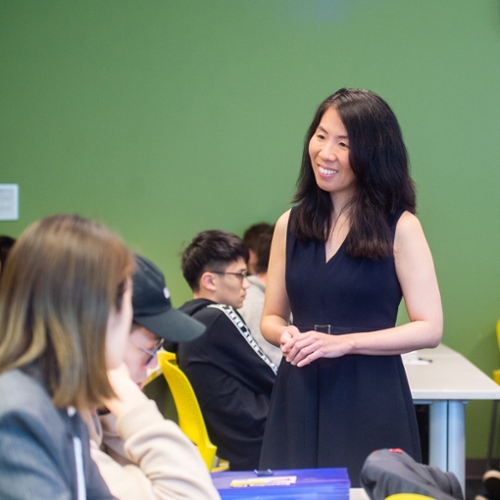
Finance Prof. Blake LeBaron is director of the MSBA program.
To some, it’s an impenetrable puzzle of information.
But to others data represents a big opportunity for business growth and innovation.
Brandeis International Business School designed the Master of Science in Business Analytics (MSBA) program specifically to teach students how to harness the power of data and apply it strategically in the world of business.
“Firms want employees with business savvy who also know the latest computing tools — a jack-of-all-trades type,” said Blake LeBaron, MSBA program director and the Abram L. and Thelma Sachar Professor of International Economics. “Our students are very good at that. They’ll give their employers a lot of added value out of their data.”
The MSBA is in high demand at the International Business School. After launching in 2018 with 45 students, enrollment is on the rise. LeBaron believes the program’s popularity is in response to a rapidly changing business landscape.
“Our students see what’s coming,” said LeBaron.
Companies across industries are awash with data. At the same time, high-powered computers can now easily crunch through it all in search of trends and connections. As a result, managers are increasingly looking to hire employees with a combination of business and analytic skills.
“We know what businesses are looking for,” said LeBaron. “The MSBA is designed to meet that demand and equip our students with the skills they need.”
During a recent interview, LeBaron shared more insights into the data analytics revolution and what job opportunities are available for MSBA students.
Featured Stories
News Categories
@BrandeisBusiness Instagram
View this profile on InstagramBrandeis Intl. Business School (@brandeisbusiness) • Instagram photos and videos

December 23, 2019
MBA candidate Paul Schulman is a 2019 Reaching Out fellow
December 19, 2019
Why isn’t there more diversity in teaching?
December 19, 2019
Making diversity matter